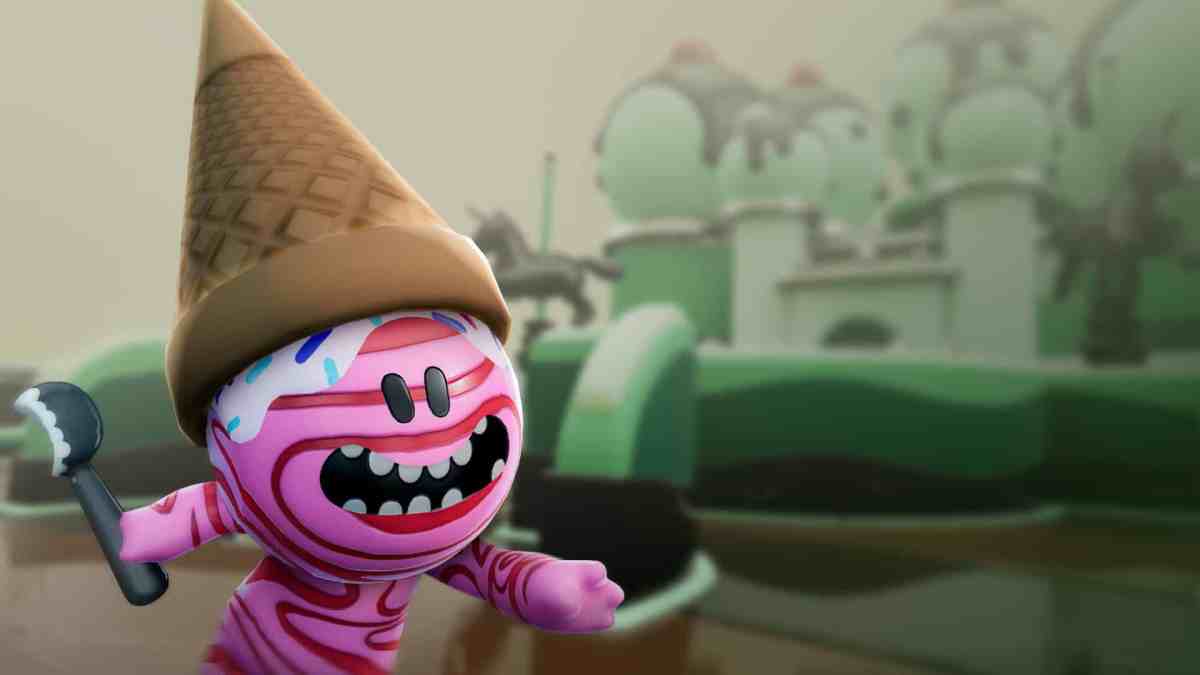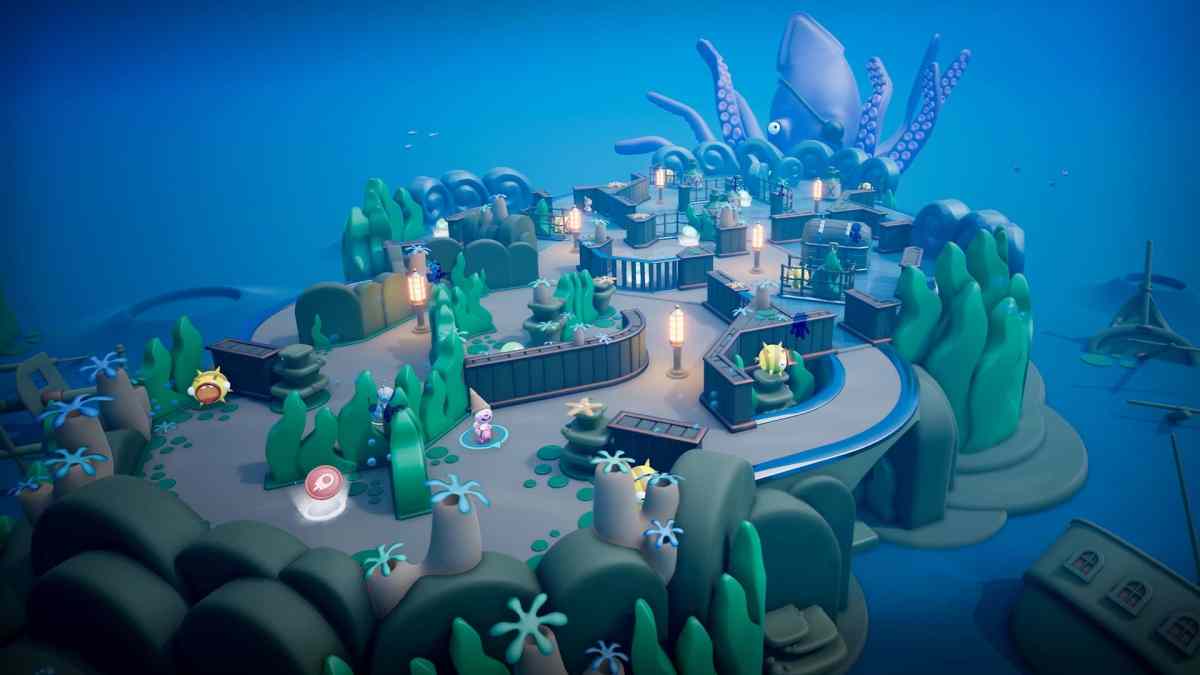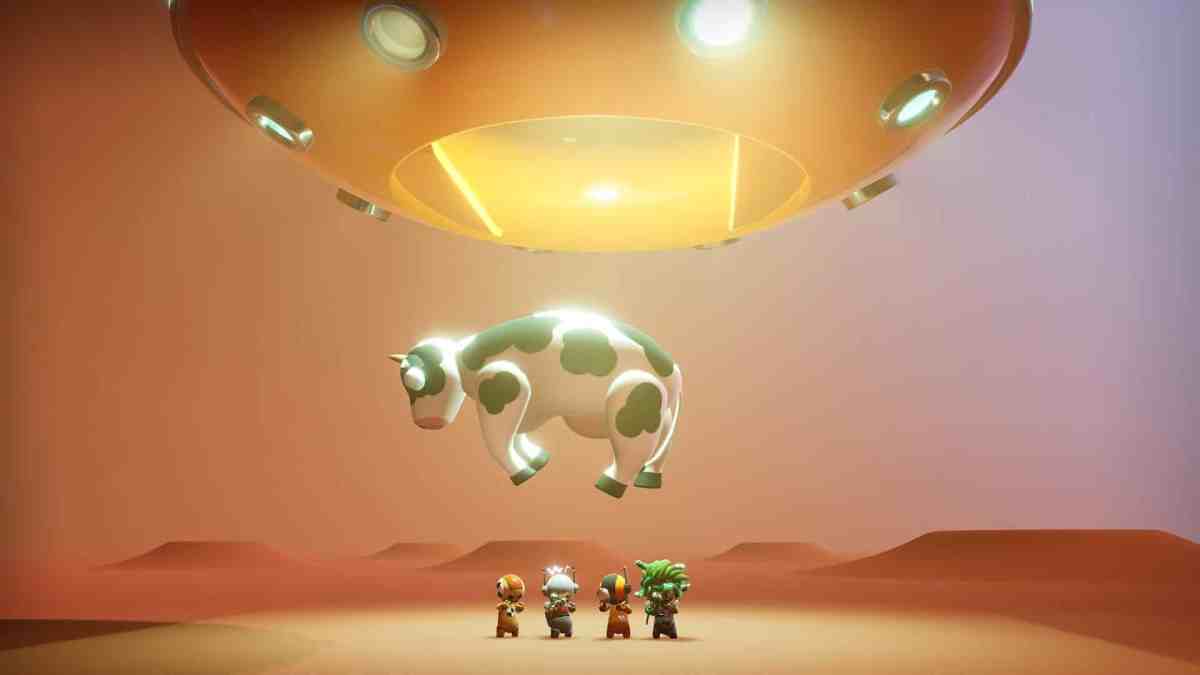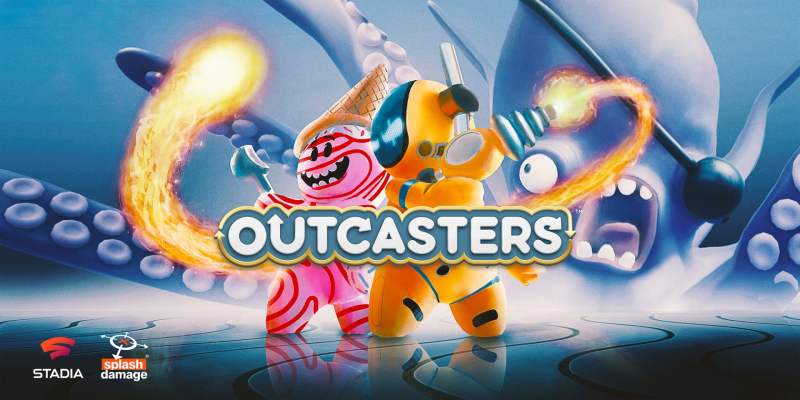Outcasters is not the kind of game I expected heading into my interview with Splash Damage.
It’s a studio that’s made a name for itself working on the multiplayer for games like Gears of War, Doom 3, and Wolfenstein: Enemy Territory — games that lean heavily into the blood-soaked, war-torn side of multiplayer.
Splash Damage knows that’s its reputation. In fact, before they let me get a peek of Outcasters, they made sure I knew that was their reputation, showing me a list of games they’d released over the past decades, conspicuously leaving out some of their more colorful projects such as Dirty Bomb and RAD Soldiers.
Then they showed me their upcoming Stadia exclusive, which looks like this:
They showed me a video of the game in the middle of a video conference. CEO of Splash Damage Richard Jolly, Outcasters Product Lead Lily Zhu, and Stadia’s Executive Producer Nico Zettler all watched me take in the barrage of bright colors and action figure-like characters. Not a single one of these happy creatures even tried to chainsaw anyone else’s face off, which was rather jarring.
I don’t know what my face looked like during the video, but they certainly took notice.
“This is exciting,” said Zhu. “It’s like reaction videos on YouTube.”
While Outcasters might have a different flair, and certainly a different appeal, Jolly was quick to point out that its design builds on many of the concepts that Splash Damage pioneered years ago, such as character progression throughout a play session.
“Way back in Wolfenstein: Enemy Territory, we kind of pioneered this notion of team play and objective-driven gameplay,” said Jolly. “We’ve taken a lot of those things and distilled them down into Outcasters, which is a far more accessible version of that.”
The game is designed around quick matches with small teams, with players assuming different roles and gaining strength throughout the play session by stacking power-ups. To hear Splash Damage tell it, it’s a game with streamlined versions of what they’re known for, but in a “very, very colorful wrapper.”
So why the change?

“I think it’s just that we’re getting older, we have more responsibilities, we’ve got children, we want to take those elements that have been so great and take them to a much wider audience,” said Jolly. “So, Outcasters is gonna be the game that you’ll think, ‘Is this a Splash Damage game?’ But when you get to playing it, you get to see it, get your hands on it, you realize there’s so many of those nuances there.”
Rather, the common denominator is strong multiplayer experiences that bring people together — a core concept that led to Splash Damage’s very inception.
“We founded the company because we met each other playing Quake online,” said Jolly. “This was back in the late ‘90s. Back when multiplayer was such a niche, niche area. It was nothing like the behemoth it is today.”
That sense of competitive multiplayer community is not just a thread that runs through Outcasters — it’s part of what gave birth to the game in the first place. Splash Damage had some available time, so the company decided to host a game jam and see whether its developers could come up with an interesting prototype in just a few days. Out of all the creations that came forward, it was clear that the idea behind Outcasters — bending shots in an attempt to outthink your opponents’ movements — was the most entertaining of the bunch.
“It was like, wow, this is fun. This is a lot more fun than ‘how about we bend the shot’ sounds like,” said Zhu. “We started to share it within the studio and share it with the execs team, and everyone just jumped on it, saying, ‘Wow, this is really a good game that we should take forward.’”
And so they did — and Google, looking for exclusives to feature on its new streaming platform, decided it was a perfect fit.

“As a publisher, this is exactly what you hoped for. It’s a very different hue,” said Zettler. “Basically a side project. Something that just comes naturally — just self-invented.”
As for Splash Damage, it’s thrilled at the chance to work with Stadia — especially with a multiplayer game. A streaming service, they say, has certain advantages over traditional distribution methods.
“When you’re playing a video stream, it’s near-impossible to be able to cheat, which levels the playing field in a way that you can have so much confidence in a multiplayer game that you couldn’t have on any other platform,” said Jolly. “And I think that’s just barely scratching the surface of what’s possible with Stadia.”

That’s not the only thing that excites Splash Damage about Stadia, though Zettler cast a nervous look in Jolly’s direction when he talked about plans to merge YouTube with Stadia in order to turn “passive gamers into active gamers.”
“There’s a whole bunch of stuff we aren’t talking about yet,” Jolly said after stopping himself. “I can see everyone saying, ‘I hope he doesn’t say anything.’ I’m not going to.”
So will people be receptive to a move like Outcasters from Splash Damage? The studio sure seems to think so — and they say they’ll be looking to the community for feedback on where to take the game.
“We will be listening to more feedback from our player base and listen to what they want from us,” said Zhu.
